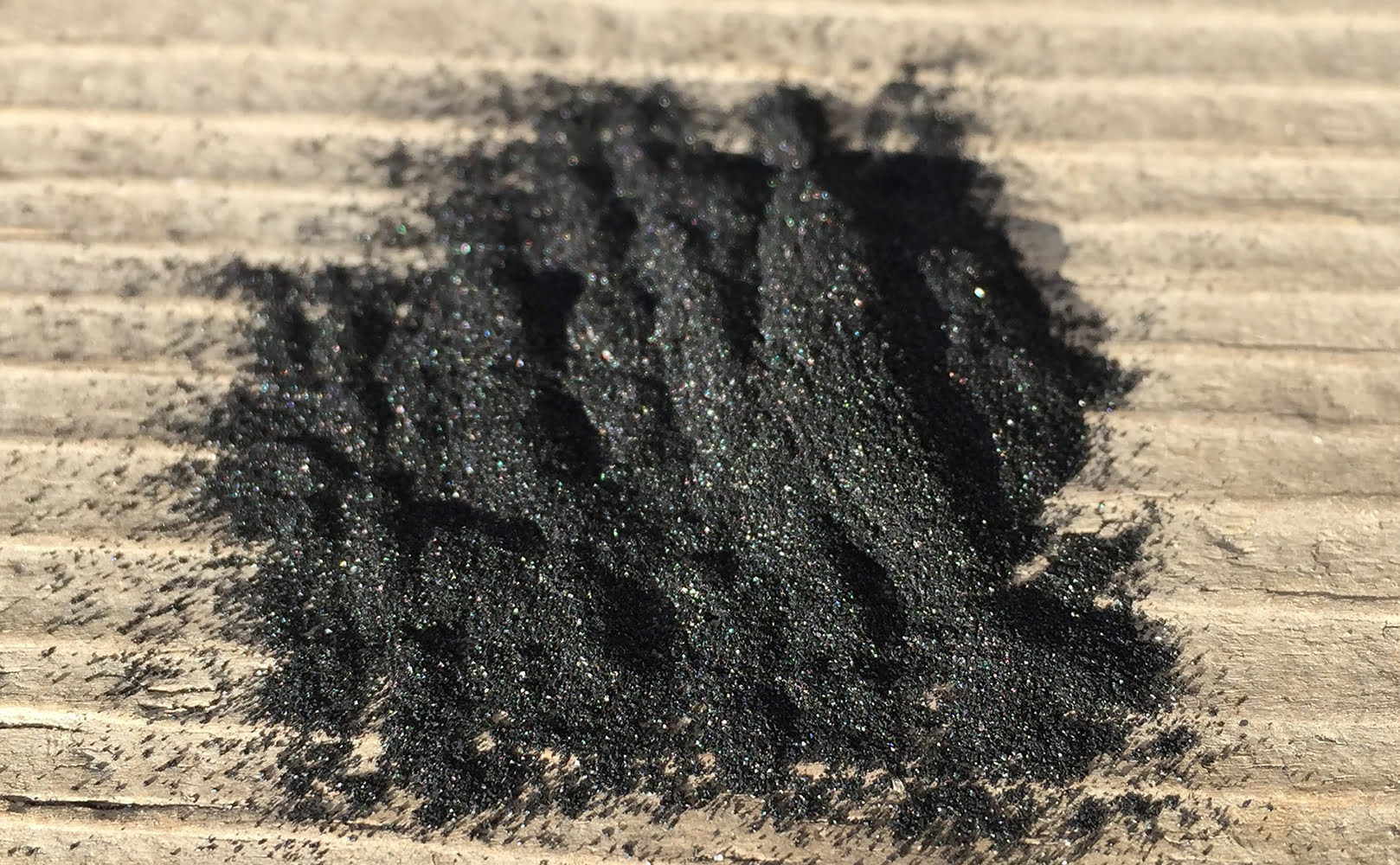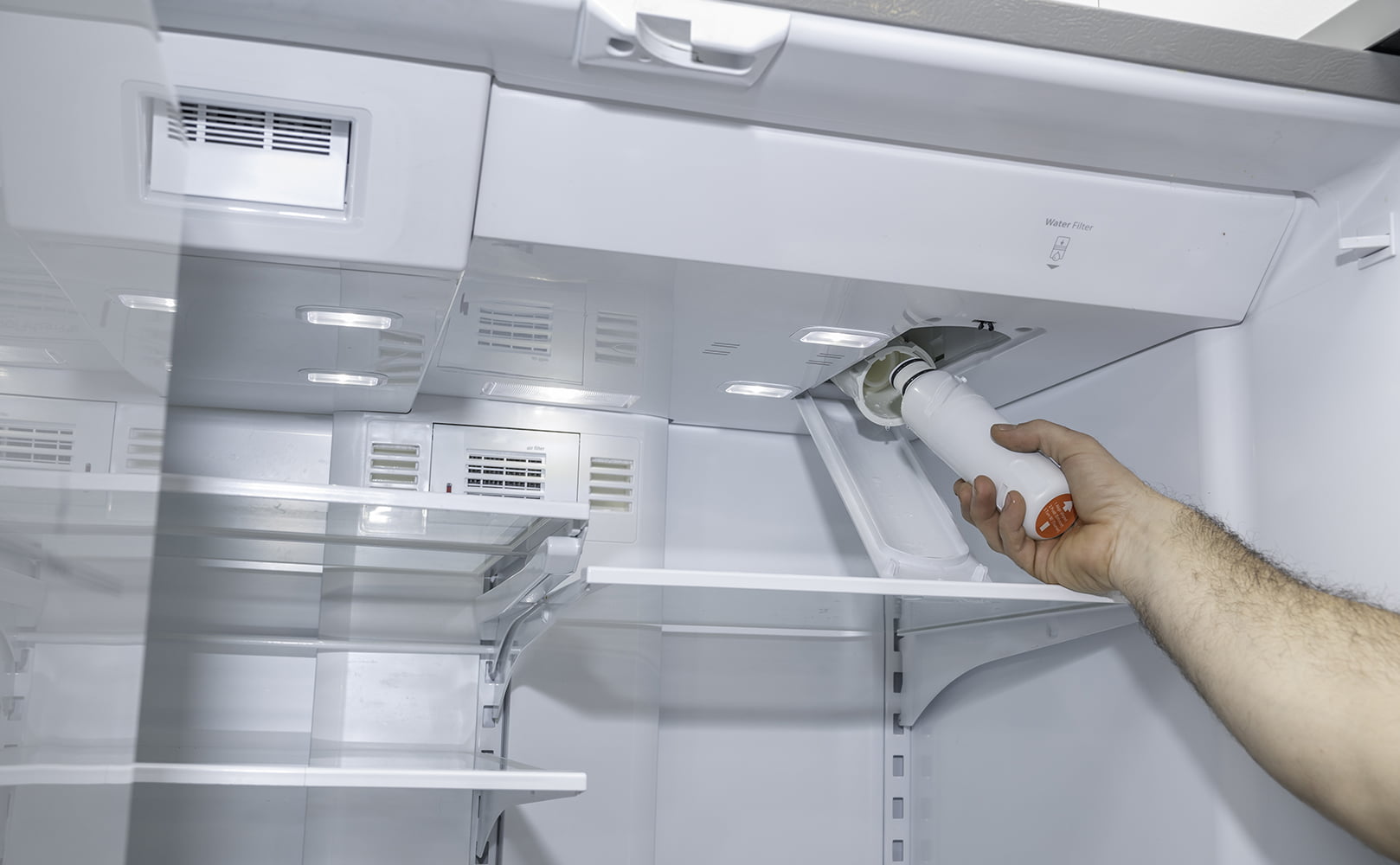Do Refrigerator Water Filters Remove Lead?
Written by: Gene Fitzgerald // Last Updated: Oct 20, 2022
This page may contain affiliate links. If you buy a product or service through such a link we earn a commission at no extra cost to you. Learn more.
Lead-contaminated water is a real threat with severe consequences, and people are constantly looking for ways to get lead out of their drinking water.
Some people believe that their drinking water is safe from lead as long as their refrigerator has a water filter. But is it really? Do refrigerator water filters remove lead from water?
In this post, you’ll find out if you can trust your fridge filter to keep your water lead-free. We’ve also provided a list of the leading filter brands if you want to count on refrigerator water filters for lead removal.
Key Takeaways
- Yes, a refrigerator water filter does remove lead provided it uses activated carbon (especially coconut-shell carbon) as its filtration media.
Does a Fridge Water Filter Remove Lead?
Yes, a fridge water filter removes lead from water, but only when it uses activated carbon as its filtration media. Each water filter has media that blocks the passage of contaminants. This may be activated carbon, ion exchange resin, a physical screen, etc.
If your fridge filter uses activated carbon, especially coconut-shell carbon, then it can remove lead from water.
Activated Carbon
Activated carbon (or activated charcoal) is a type of carbon used as a medium to filter out water contaminants. Activated carbon has very small pores on its surface, so it works well for adsorbing chemicals, lead, chlorine, and organic compounds in general.
Refrigerator Water Filter Brands That Remove Lead
These brands produce refrigerator water filters that use activated carbon media and are NSF-tested/certified to remove lead from water.
Samsung
The most common Samsung refrigerator filter is the Samsung DA29-00020B. It uses a solid carbon block that effectively removes at least 99% of lead from water. Meanwhile, it retains healthy minerals in your water.
On top of that, the Samsung refrigerator filter is easy to install.
The only con is that Samsung fridge filters can be pricey.
GE
Carbon block GE filters effectively remove 99% lead and about 20 other contaminants from water. They have a remarkable filtration performance and are known to improve water quality significantly. GE fridge filters are also very easy to install and replace.
However, some users complain about slow water flow rates.
Frigidaire
Genuine Frigidaire refrigerator water filters are NSF-certified to remove up to 99.7% lead from water. They perform excellently and are very easy to install; you do not need any tools.
As long as you buy an original Frigidaire filter (that has the genuine filter seal on the package), you can trust to have lead-free, great-tasting water at home.
LG
LG produces a range of refrigerator filters for different water qualities. For example,
- the LT700P and LT800P are certified against NSF standards 42 and 53 (lead removal),
- while the LT500P filter is only certified against NSF 42.
- The LT1000P filters the most contaminants, including lead, and has a high-performance level.
Whirlpool, Maytag, KitchenAid, JennAir, and Amana
All these fridge filter brands use EveryDrop refrigerator water filters. EveryDrop filters use Triple Filtration Technology (NSF-certified) to remove various water contaminants, including lead. They also improve water taste.
EveryDrop water filters have a high water flow rate and are simple to install. However, on the flip side, they tend to be expensive.
Kenmore
Kenmore is another NSF-certified fridge filter brand ideal for lead removal.
The Kenmore Elite 9081 is the most popular fridge filter from this brand. It is compatible with Kenmore side-by-side, bottom-freezer, and top-freezer refrigerators. Kenmore filters use a simple installation process and are known to improve water taste.
NSF Testing/Certification Is Important for Lead Removal
An NSF standard 53 certification may confirm that a fridge filter has been tested and found effective at removing lead from water. But there must have been lead testing specifically! In other words, if you check the test results, there needs to be a reduction rate listed for lead. If your fridge filter brand has one, you can trust it for lead filtering.
Alternatively, the company must provide evidence that the filter has been separately tested for lead removal against NSF 53 standards.
What Other Contaminants Do Refrigerator Water Filters Remove?
Apart from lead, a fridge water filter can remove these contaminants from water:
- Chlorine
- Chloramine
- Asbestos
- Cysts
- Pharmaceuticals, pesticides, herbicides
- Volatile organic compounds (VOCs)
- Mercury
- Microplastic
Limitations: What a Refrigerator Water Filter Does NOT Remove
Refrigerator water filters are effective, but they are not the panacea for all water problems. For example, a fridge filter may not work if your water contains these contaminants:
- Chromium-6
- Bacteria and viruses
- Fluoride
- PFAS
- Iron or manganese
How a Fridge Water Filter Works
A fridge water filter works by pushing your water through its filter media. This media removes water contaminants like lead and chlorine. In the case of activated carbon, they are being attracted and trapped on the carbon’s surface.
Maintenance Is Critical — Replace Filters Regularly!
A refrigerator water filter traps contaminants, so it becomes saturated and clogged over time.
If you wait for too long, your filter will stop working effectively. To keep your fridge filter active and able to remove lead, you must replace it on a regular basis – most manufacturers recommend every 6 months.
Some fridge filters have an indicator that lets you know when the filter needs replacement. If your filter has one, follow the indication. If not, ensure to replace it in a timely manner.
It’s Important to Get Your Water Tested!
Since refrigerator filters do not remove all contaminants from water, you should get your water tested to know the type or types of impurities it contains.
That will help you know if and which fridge filter is ideal for your water conditions.
You can use any of these methods to test your water:
Lab Test
Doing a lab test is the most accurate way to test your water. It involves taking your water sample to a state-certified laboratory.
The lab test results will reveal the specific contaminants in your water and their level. To ensure the accuracy of your water test, you should follow all given instructions precisely.
DIY Lead Test Kit
DIY test kits are a simpler way of detecting contaminants like lead in water. A lead test kit is designed specifically to test your water for the presence of lead.
Consumer Confidence Reports
Consumer Confidence Reports (or water quality reports) contain information about the water quality in a community, including what type of contaminants are present. You can access your Consumer Confidence Report (CCR) online or get it from your water supplier.
However, CCRs are only available for community water systems. If you use a private well, you cannot analyze your water using such a report.
You May Need More Than Just a Refrigerator Water Filter
If testing reveals that your water contains contaminants that a fridge filter cannot remove, you need a more sophisticated water treatment solution.
You should get a stronger, high-quality water filter that can remove the exact contaminants found in your water supply.
Consult a Professional
If you’ve got your water test results, but don’t know how to interpret them, you should consult a professional. If you have tested your water at a lab, you can ask the people at the lab for an explanation.
You can also consult your county health department for help.
Otherwise, get help from water professionals online, using reputable platforms like the Well Water Interpretation Tool by Ohio State University or the Drinking Water Interpretation Tool by Penn State Extension.
How Does Lead Get Into Our Drinking Water, and What Are the Health Effects?
Lead gets into drinking water through pipes, taps, and other plumbing parts that contain the toxic heavy metal. When these plumbing materials corrode, lead leaches into water, especially when the water is hot or acidic.
Lead is a very potent neurotoxin. Its presence in drinking water can cause stunted growth or anemia in kids. For adults, it can lead to high blood pressure, kidney problems, hypertension, and reproductive issues.
If you have any thoughts about the question, does a fridge filter remove lead, please don’t hesitate to leave a comment below!
Information provided on BOS is for educational purposes only. The products and services we review may not be right for your individual circumstances.
We adhere to strict editorial guidelines. Rest assured, the opinions expressed have not been provided, reviewed, or otherwise endorsed by our partners – they are unbiased, independent, and the author’s alone. Our licensed experts fact-check all content for accuracy. It is accurate as of the date posted and to the best of our knowledge.



